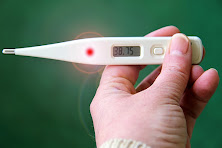What is Typhoid Fever ?
A potentially fatal multisystemic infection known as enteric fever, also known as typhoid fever is caused primarily by Salmonella enterica serotype typhi and, to a lesser extent, paratyphi A, B, and C. ICD 10 code for enteric fever is now A01.00. Salmonella are motile enterobacteriaceae that can cause a number of different gastrointestinal infections. Typhoid, which is primarily caused by Salmonella enterica serotype typhi and, to a lesser extent, S enterica serotypes paratyphi A, B, and C, is the most dangerous of these. From a severe septic illness to minor cases of diarrhoea with low-grade fever, it can present in a wide range of ways. Fever, malaise, diffuse abdominal pain, and constipation are characteristics of the classic presentation. Typhoid fever that is left untreated can lead to delirium, obtundation, intestinal bleeding, bowel perforation, and death in less than a month.
It has grown more and more resistant to antibiotics over time. Extensively drug-resistant typhoid (XDR) was reported in Pakistan in 2016. Azithromycin, carbapenems, and tigecycline are the only antimicrobial classes that are still effective against these strains.
Conditions of poor sanitation, overcrowding, and social unrest favour the growth of typhoid. Typhoid fever is still endemic in developing nations, despite the fact that antibiotics have significantly decreased its prevalence in the developed world. It's possible that S paratyphi infections are becoming more common than S typhi infections. This might be brought on by the immunologic immaturity of a particular population as well as the insufficient protection against these pathogens offered by the current Typhoid vaccines. Most commonly, non-Typhoidal strains cause a mild, self-limiting gastroenteritis. Nevertheless Typhoid vaccines play a crucial role both in primary prevention and decreasing the disease severity in affected individuals.
Vaccines for prevention :
 |
| Courtesy : Dr Koushik's Medicare |
Typhoid fever can be prevented by two vaccinations. The first is a live, attenuated (weakened) vaccine, and the second is an inactivated (dead) vaccine. Which typhoid vaccine is ideal for you can be decided with the aid of your doctor. Typhoid vaccination that has been inactivated is given by injection. Children of 2 years of age and older may receive it. At least two weeks prior to departure, one dose is advised. For those who continue to be at danger, repeated doses every two years are advised.
Oral live typhoid vaccine administration (by mouth). Six years of age and older individuals may receive it. Every other day, one capsule is taken, making a total of four capsules. At least a week before departure, the last dose should be taken.About an hour before meals, each capsule should be taken whole (without chewing) with cold or lukewarm water. For those who continue to be at risk, a booster shot is required every five years. It's crucial to keep live typhoid vaccine capsules chilled (not frozen).
In developed countries most of the time routine typhoid immunisation is not advised, although the following situations may warrant administration of typhoid vaccines.
a) Tourists going to regions where typhoid is widespread. (NOTE: Typhoid vaccination is not 100% effective and is not a replacement for exercising caution while choosing foods and beverages.)
b) Individuals in close proximity to a typhoid carrier.
c) Employees in laboratories that handle Salmonella typhi bacterial culture and strains
The typhoid vaccine may be administered concurrently with other shots.
In 2023 typhoid vaccine price in India is around INR 1500-2500 based on the brands available. You can check the same on : https://www.apollopharmacy.in/medicine/typbar-tcv-pfs-injection-0-5ml
Typbar TCV Vaccine 0.5 ml. It includes sodium chloride and the purified Vi polysaccharide typhoid vaccine. Typhoid disease is prevented with it. A non-toxic and safe form of the causative bacteria's capsular specimen is injected into the body by Typbar TCV Vaccine, which prompts the body to produce antibodies and confers immunity. The body keeps track of this immune response to ensure that it is ready in the event that these bacteria invade again in the future.




